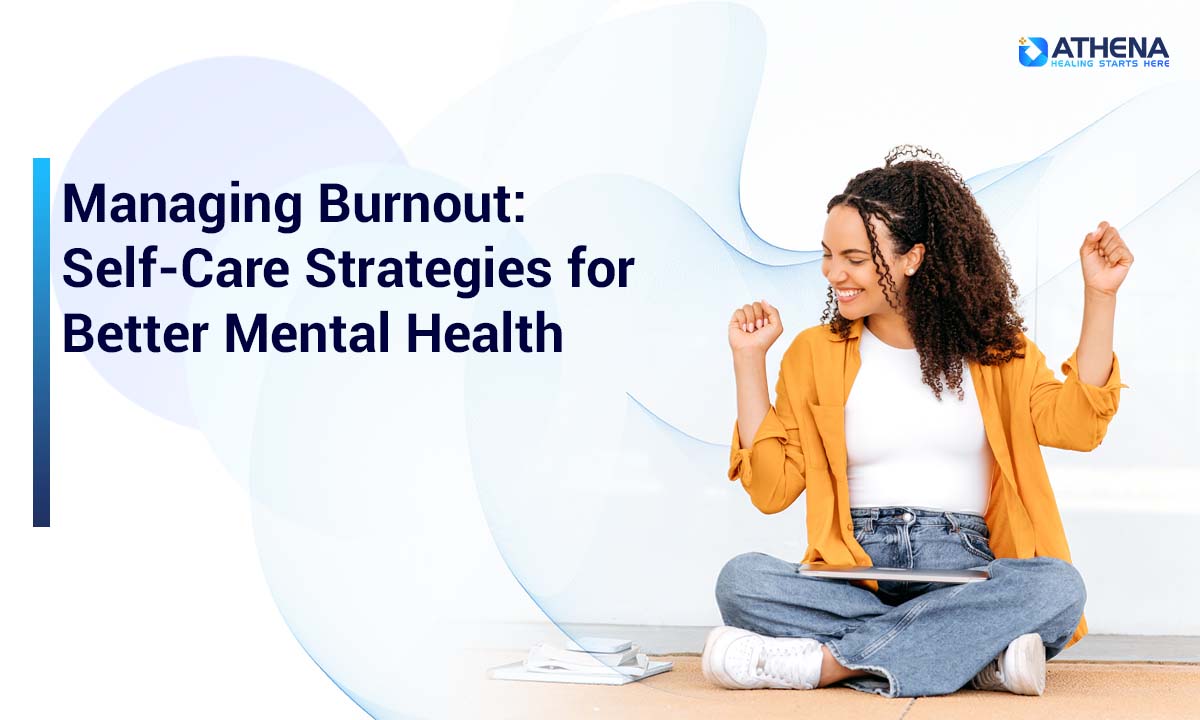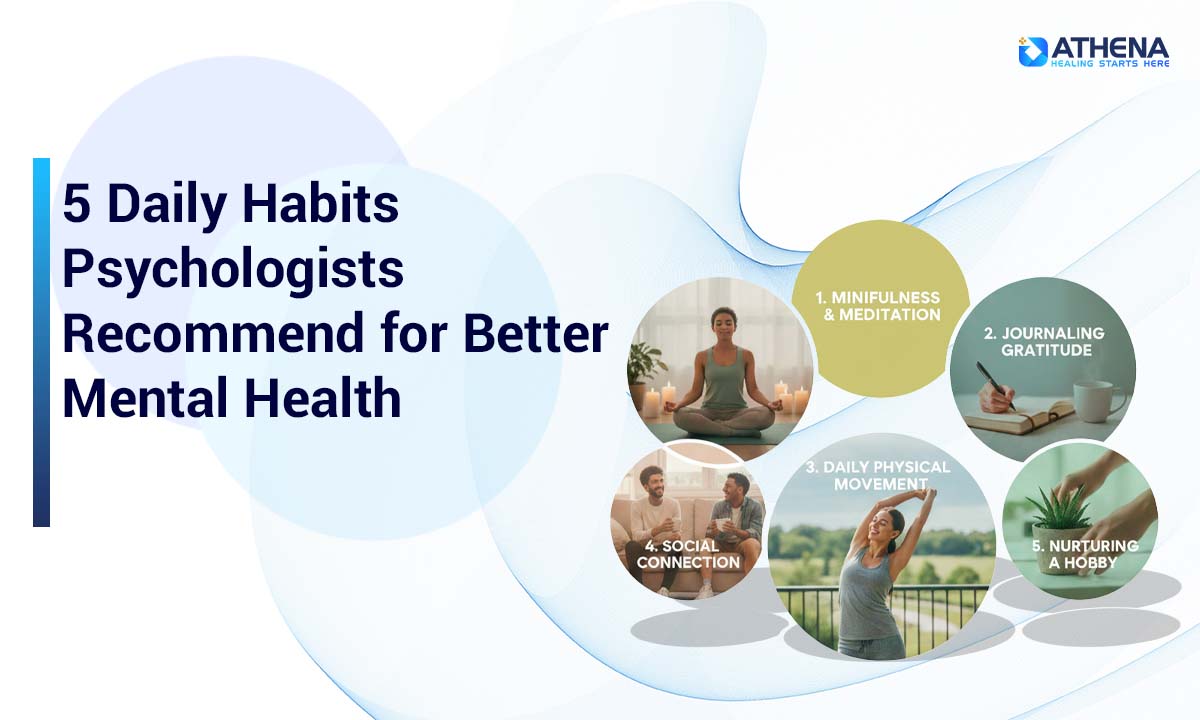Managing Burnout: Self-Care Strategies for Better Mental Health
Have you ever experienced a sense of exhaustion that might be difficult to explain? The feeling of tiredness that feels as if it is beyond physical concerns, rather, feeling tired mentally, emotionally as well? Ever felt like even making a cup of tea for oneself becomes a huge task?
Well, if your response to the above-mentioned question was ‘yes’ then what you might have experienced can be BURNOUT. Through this blog, we have tried to make the explanation of burnout easier along with some self-care strategies for better mental health.
Please note that the goal of this blog is no way to encourage self-diagnosis but rather to create more awareness about burnout so that if needed you can seek professional help at the right time!
Burnout – Symptoms and Impact
Burnout can be explained as a state of exhaustion that may occur because of prolonged stress. It might occur in diverse ways such as burnout because of job, academic pressure and so on. The consequences of burnout can vary from person to person, some common experiences can include an impact on productivity level, job performance and well-being of the individual.
Coping strategies can serve as a wonderful tool for preventing and managing burnout. There can be diverse exercises and as you move ahead you shall get a glimpse of a few self-care strategies for better mental health.
Self-Care Strategies
It is important to remind oneself that ‘self-care is not selfish’. There can be various ways through which one can engage in self-soothing activities. It can be helpful to explore and identify what works as the best way of self-care for a particular person. There may not be any specific recipe for self-care but some common ingredients can include:
Work-life balance
If you sense that your 9 to 5 job or freelancing has now taken control of your entire life leaving no time for personal care, socialization and relaxing then a quick reflection can be useful. This does not mean that one shall only focus on personal care activities and become extremely lenient with professional life, instead, the goal is striking a balance between the two.
To maintain a work-life balance one can try the following methods:
- Prioritizing
- Time management
- Maintaining a to-do list
- Delegating tasks that are not very important
- Speaking with suitable authorities at the workplace regarding extensive work pressure
Setting Boundaries
‘Saying no’ can be an art that requires some time and effort to master. A lot of times one ends up doing even another’s work, be it in professional life or personal life. One might feel already overburdened and still find themselves attending social events that they are not at all fond of, doing their neighbor’s work even when they are extremely tired and all of this can stem from not being able to set proper boundaries.
Here are some ways through which one can try to set boundaries:
- Reflect upon current boundary setting
- Practice saying no in a safe environment
- Explore the feelings associated with saying no and if needed seek professional help
Sleep Regulation
Sleep schedule can be a huge factor in one’s overall well-being. A healthy sleep schedule can promote optimal functioning of individuals whereas long working hours can lead to reduced sleep and poor sleep quality. One can try to develop a healthier sleep pattern through the following ways:
- Setting a specific schedule
- Minimizing screen time before sleeping
- Using methods like guided imagery for a relaxed sleep
Physical Exercise
Exercise is known to be beneficial for improving overall well-being by releasing endorphins, which can lead to a sensation of relaxation. It can also help minimize stress and improve sleep quality as well. To ensure physical exercise is a part of one’s daily routine, the following methods can be applied:
- Setting 30 minutes apart each day for physical exercise
- Rewarding self after being able to exercise every day for a month can act as a motivator
- Reflecting upon the impact of physical exercise so that one can observe the changes being felt
Social Support
Building a strong social network can be another helpful self-care strategy to promote wellness. One might be going through a lot as a consequence of burnout and a listening ear can do wonders during such times. Here are a few ways through which one can try building strong social support:
- Improving communication and interpersonal relationship skills
- Joining support groups
- Surrounding self with those who encourage open communication
Professional Help
One can reach out to mental health care providers to seek professional support to care for mental well-being. In case of a prolonged state of exhaustion seeking professional support can be useful for expressing one’s concerns, understanding them better and developing goals towards better well-being.
It is rightly said that prevention is better than cure and therefore to prevent the chances of any illness such as cardiovascular disease due to constant stress and burnout, one can reach out to a mental health professional timely. Here are some steps that can help you find the right professional:
- You can explore your preferences and match them with the professionals’ scope of help – offline or online sessions, fees, area of expertise, experience etc.
- You can explore the client testimonials to better understand the professional’s practice
- The therapeutic modality being used by the professional can also be explored for making an informed decision
Start Your Self Care Journey with Athena Behavioral Health
Stepping on a self-care journey and making all possible efforts to minimise and manage burnout is a great start towards healthier well-being! The qualified team of mental health care providers at Athena Behavioral Health in Delhi NCR, India would be more than happy to support you in this wellness journey.
We have a team of compassionate care providers who explore one’s concerns in-depth through individual counselling sessions and develop individualised treatment plans tailored to the client’s needs.
You can learn more about self-care strategies for better mental health by contacting our team of professionals via mail at customercare@athenabhs.com or call us at +919289086193 and we would be glad to help you!

 WhatsApp
WhatsApp



